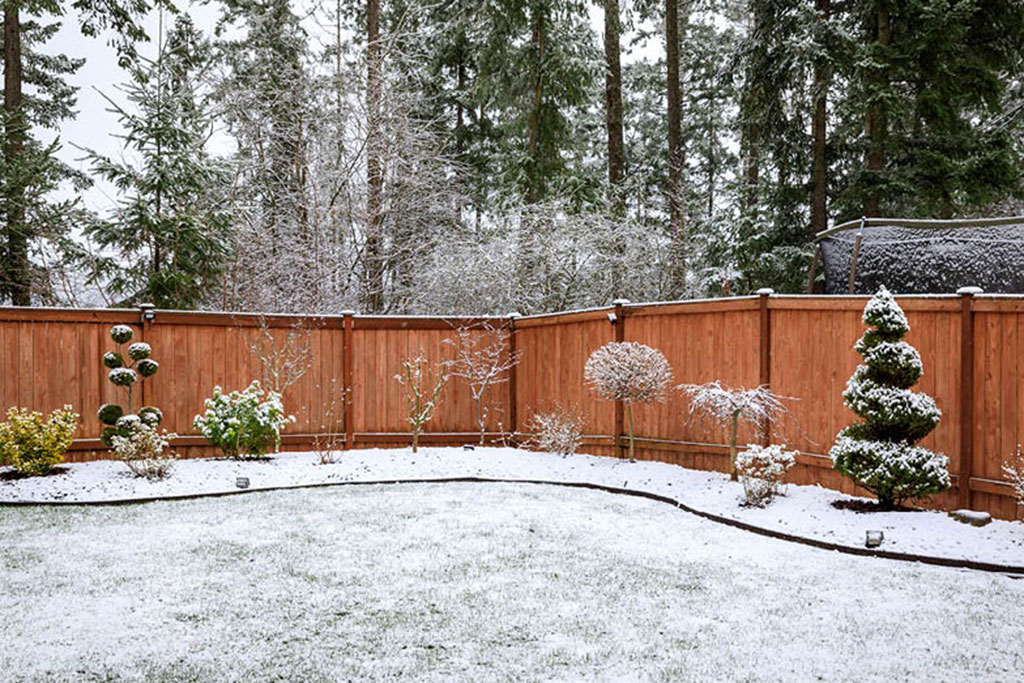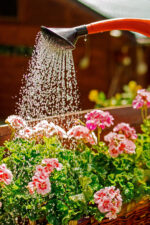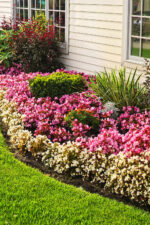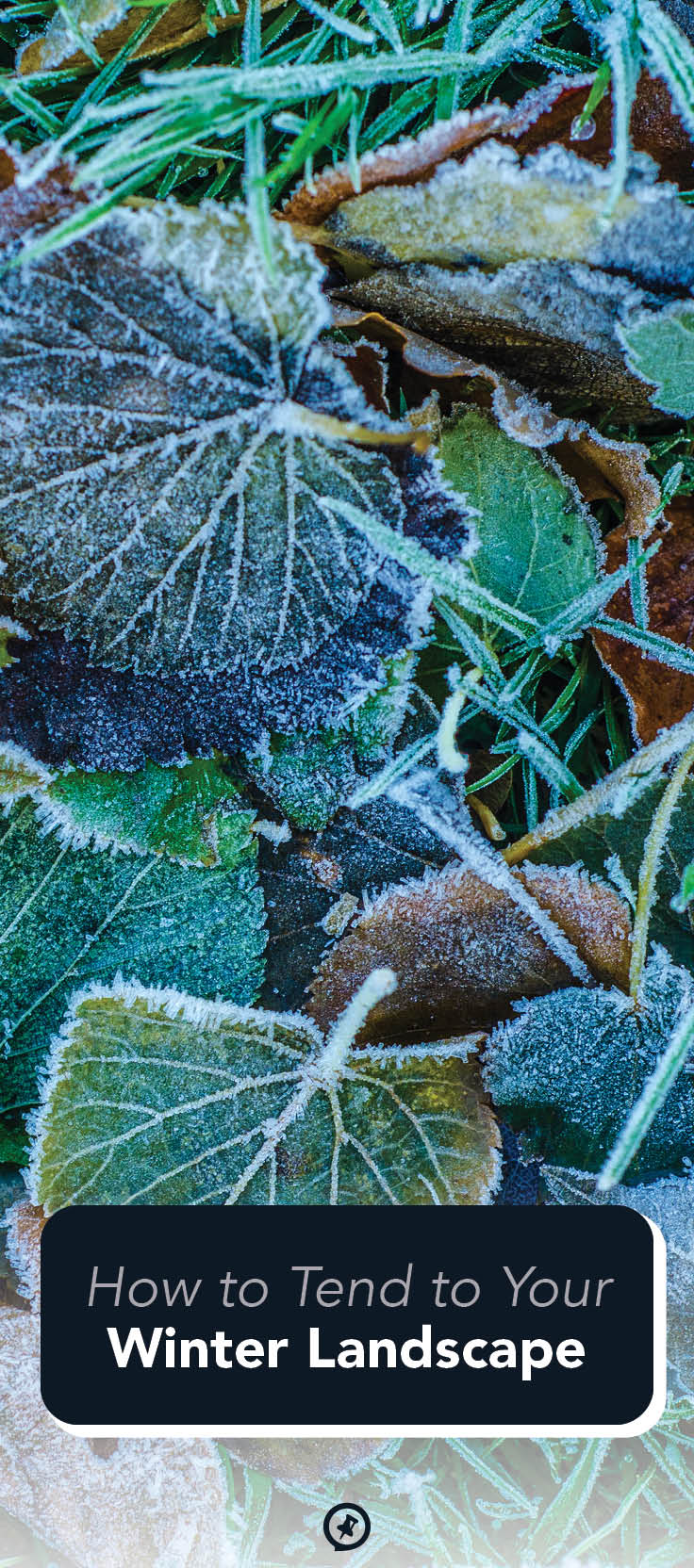How to Tend to Your Winter Landscape
Winter’s signature sights delight the senses, whether you witness a soft coat of snow, an icicle fringe dangling from your roof’s edge, or a cool, gray evening sky.
But the season also offers another less appealing sight: dull and dreary landscaping. What’s a proud homeowner to do when the yard they worked so hard to maintain all year rewards them with unsightly winter coloring?
Every season has particular landscaping demands, including the coldest one. With a few tasks, though, you can develop a durable landscape that resists the winter chill. Follow these tips to help keep your yard healthy in winter so it sings in spring.

Tending to flowers and shrubs
Avoid pruning dead growth or picking the rare blooming flower; doing so can expose the delicate inner layers of the plant to frigid air. For cozier rest, blanket the roots of your shrubs and flowering plants with mulch, which can lock in warmth and moisture. You should also safeguard your plants, especially if they aren’t native to your region, against harsh winter storms by temporarily covering them in burlap. This material is light enough to let in moisture and sunlight but dense enough to keep the plants warm.
Winter tree care
Believe it or not, evergreens may still want their thirst quenched in winter, particularly if your region is short on rain and snow. Water these trees occasionally, using a hose if possible to help keep surrounding plants dry, but don’t allow moisture to collect on the surface of the soil. Share the hydration with your other trees and plants a few times a month as well. “Even though remaining plants are dormant during the winter, it’s still important that they receive the water they—specifically, their roots—need to stay alive,” Jobe’s notes.
If you have fruit trees, prune dead or dry growth in late winter, and spray them with dormant oil, which will protect them from pests that may unfortunately still be active this season. Apply according to the product’s directions.

Get a helping hand
Winter landscaping can be a challenge, especially for climate-sensitive plants like vines and herbs. If you face serious yard care challenges, keep a horticulturist’s contact info handy. This expert will happily lend a hand if you have concerns about a particular plant species or need to bring your lawn back from the brink.


















